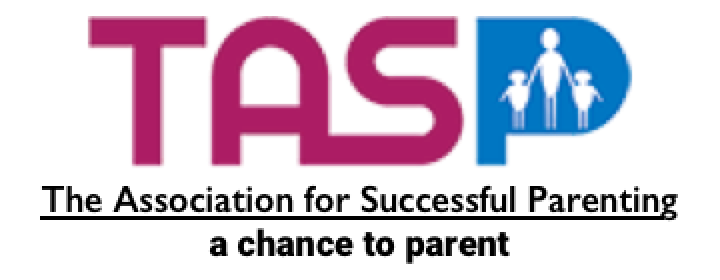Mental Health Toolkit: A toolkit for providers and therapists working with parents with IDD
Building Support Networks to Reduce the Risk of Isolation for Parents with IDD – Webinar Companion
Effective Support Strategies for Parents with IDD – Webinar Companion
Archived Webinars : All of TASP’s archived webainrs from 2021 and 2022 can be found here. They are available for a small fee.
Getting your child vaccinated against COVID-19: A video series and resource guides: TASP created 3 videos and accompanying resource guides to make sure all parents have the correct information to make their own decisions about getting their child vaccinated against COVID-19. This video series and resource guides were created to provide simple, plain language information for parents with IDD. It was developed by members of the TASP Advocacy Committee, including self-advocate parents.
Why Childhood Vaccines Are Important: A video and resource guide: TASP created an open-captioned video and accompanying resource guide to make sure all parents have the correct information to make their own decisions about getting their child vaccinated. This video and resource guide was created to provide simple, plain language information for parents with IDD. It was developed in conjunction with self-advocate parents on TASP’s Board of Directors.
TASP – Organizational Self-Assessment: The TASP-OSA is a self-assessment tool that an agency, program or state department can use to examine support for parents with I/DD at the local, regional or state level. The OSA-TASP is intended to help you gather information useful in long term planning (e.g. 5-year plans). The TASP-OSA provides you with guiding questions in the following nine service areas.
NOTEWORTHY CIVIL RIGHTS DECISIONS
- M.A.S.C. Decision: Washington State DCYF, May 2021: The Washington Supreme Court concluded Department of Children Youth and Families (DCYF) did not prove by clear, cogent, and convincing evidence that it made sufficient efforts to ensure that its offers of services were reasonably understandable to the parent in light of her potential intellectual disability. It therefore reversed the order terminating her parental rights and set forth a step-by-step analysis for how to handle situations where the parent has an intellectual disability.
- Massachusetts, November 19, 2020: HHS Office for Civil Rights Reaches Landmark Agreement with Massachusetts Department of Children and Families to Address Discrimination Against Parents with Disabilities.
- Oregon, December 2019: Office for Civil Rights (OCR) at the U.S. Department of Health and Human Services announced that it has entered into a voluntary resolution agreement (VRA) with the Oregon Department of Human Services (ODHS) concerning the rights of parents with disabilities in ODHS Child Welfare Programs (CWP).
- Protecting the Rights of Parents and Prospective Parents with Disabilities: Technical Assistance for State and Local Child Welfare Agencies and Courts under Title II of the Americans with Disabilities Act and Section 504 of the Rehabilitation Act, August 2015:
- Sara Gordon Case, Massachusetts, January 2015
- HHS/DOJ letter: https://www.hhs.gov/sites/default/files/mass_lof.pdf
- Disability Scoop article about the case and decision: https://www.disabilityscoop.com/2015/02/10/child-removed-mom-feds/20047/
- Fact Sheet: Parents with Intellectual Disability
This is The Arc’s position paper and fact sheet on parents with IDD.
https://www.thearc.org/what-we-do/resources/fact-sheets/parents-with-idd
- Enhancing Social Connectedness of Mothers with ID
This article describes how to engage mothers with intellectual disabilities in a shared social group that feels safe and provides opportunities for learning. A study by David McConnell, PhD; Maurice Feldman, PhD; Marjorie Aunos, PhD and Laura Pacheco, MSW
http://achancetoparent.net/wp-content/uploads/2015/03/Social-Connectedness-of-Mothers-with-ID.pdf
- The Intersection of Child Welfare and Disability – Focus on Children
This newsletter provides a comprehensive set of articles that explore challenges and solutions for supporting parents with intellectual disabilities.
http://cascw.umn.edu/portfolio-items/fall-2013-cw360/
- New Ways of Thinking About Parents with Intellectual Disabilities
This article describes how attitudes and approaches to supporting parents with intellectual disabilities have changed. The author makes several recommendations for best practice.
http://achancetoparent.net/wp-content/uploads/2014/04/ImpactICI-IrwinSexuality.pdf
- Success Stories in Parenting with Intellectual Disability
These case studies are based on actual cases. Participating families have given consent for their stories to be shared.
http://www.idrs.org.au/support-parents/cnp-stories.php
- Research Summary and Seminal Peer-Reviewed Research-based Journal Articles on Parents with ID and Their Children. A list by Dr. Maurice Feldman.
Provided by Dr. Maurice Feldman, this includes a research summary and list of seminal peer-reviewed journal articles on parents with learning difficulties and their children. He notes the list of 32 articles is by no means exhaustive, and does not include influential books and book chapters. Nonetheless, looking at the list of articles, several key themes emerge, as well as areas where more research is needed.
- Proud Parents: a website full of plain-language resources for parents with disabilities, with a whole section on parenting. Created by a group of parents in Connecticut.
https://www.proudparents.info/
- Green Mountain Self-Advocates: Vermonters with developmental disabilities speaking up for themselves and others and providing a wide range of resources
- Toolkit to Support Home Visiting Services for Caregivers with Learning Differences: Johns Hopkins Bloomberg School of Public Health and the University of Maryland School of Medicine have updated their Toolkit to Support Home Visiting Services for Caregivers with Learning Differences. You can find TASP, and other resources, in the toolkit.
Take a look HERE.
-
Map of Current State Legislation Supporting Parents with Disabilities
http://heller.brandeis.edu/parents-with-disabilities/map/index.html
- Elevatus Training: evidence and trauma informed curriculum, online training, in-services and workshops to help professionals, educators, self-advocates and parents skillfully and confidently navigate the topic of sexuality.
https://www.elevatustraining.com/
- Easy to read “How To” booklets
Find easy-to-read “how-to” booklets for parents with intellectual disabilities.
- Parenting in Pictures
Access photos that show how to parent in pictures – a visual support for parents with Intellectual Disabilities. http://raisingchildren.net.au/parenting_in_pictures/pip_landing_page.html
- Simple Home Fixes
Find strategies for organizing a home to make parenting easier for parents with disabilities.
https://www.redfin.com/blog/simple-home-fixes-to-ease-parenting-with-disabilities
- Supporting Parents with Disabilities: Resource Binder
This binder contains a comprehensive binder of practical resources and articles that may be helpful in supporting parents with disabilities.
https://soonersuccess.ouhsc.edu/Portals/1024/assets/Electronic%20Resource%20Binder%20Nov%202017.pdf
- What do all those acronyms mean, anyways?
A number of resources are available to assist with the various and many acronyms used in the field of supported parenting and the disability world.
- Center for Advanced Studies in Child Welfare presents Navigating the System: Addressing the Overrepresentation of Parents with Disabilities in CPS. A 1.5 hour FREE learning module
- Prevention – Supporting Parents with Developmental Disabilities
This interview with a parent with intellectual disabilities describes what is helpful in family support.
We have compiled a list of websites and resources that have meaningful and helpful information about COVID-19. Most of the sites have information specific to people with disabilities and/or chronic medical conditions, and many offer plain-language resources.
- TASP’s plain-language guide on Ways to Keep You and Your Family Safe Right Now:
- “Ways to Keep You and Your Family Safe Right Now” Larger font version (updated 4/7/20)
- “Ways to Keep You and Your Family Safe Right Now” (updated 4/7/20)
- Written Resources in plain language
- Green Mountain Self-Advocates have lots of great resources, including:
- Plain-language booklets on COVID-19 created for people with disabilities by people with disabilities. English Booklet HERE, Spanish Booklet HERE, and now available in 11 languages HERE
- Words to Know About the Cornoavirus in Plain Language HERE
- Tips For Working With Support Staff During COVID-19. People with intellectual and developmental disabilities wrote these tips: HERE
- The Arc Maryland’s Coronavirus resource guide in plain language. Updates include information on emergency preparedness, staying safe outside, and grocery shopping tips. Check it out HERE
- Assortment of resources related to coronavirus from National Health Law Program and their partners, including information on COVID-19 and Medicaid that may be helpful for anyone advocating for families who have MA: HERE
- Green Mountain Self-Advocates have lots of great resources, including:
- Video Resources
- Learn all about COVID-19 in this plain language video Made by Rooted in Rights in collaboration with ASAN. HERE
- Resources for you and your children:
- Pediatric Therapeutic Services plain language COVID-19 information: PTS-Coronavirus-Story-1
- Manuela Molena Cruz has written the CoviBook: a short, simple book to explain coronavirus, available in 21 languages: HERE
- From Zero to Three, page includes resources for families, including age-appropriate responses to common questions, a guide to self-care, and activities for young children experiencing social distancing HERE
- Websites with helpful information
- Administration for Community Living’s page on COVID-19 and “What do Older Adults and People with Disabilities Need to Know?” is updated regularly with current information, fact sheets, guidance, and additional links. Be sure to check out their state-by-state links to information and resources for each individual state.

